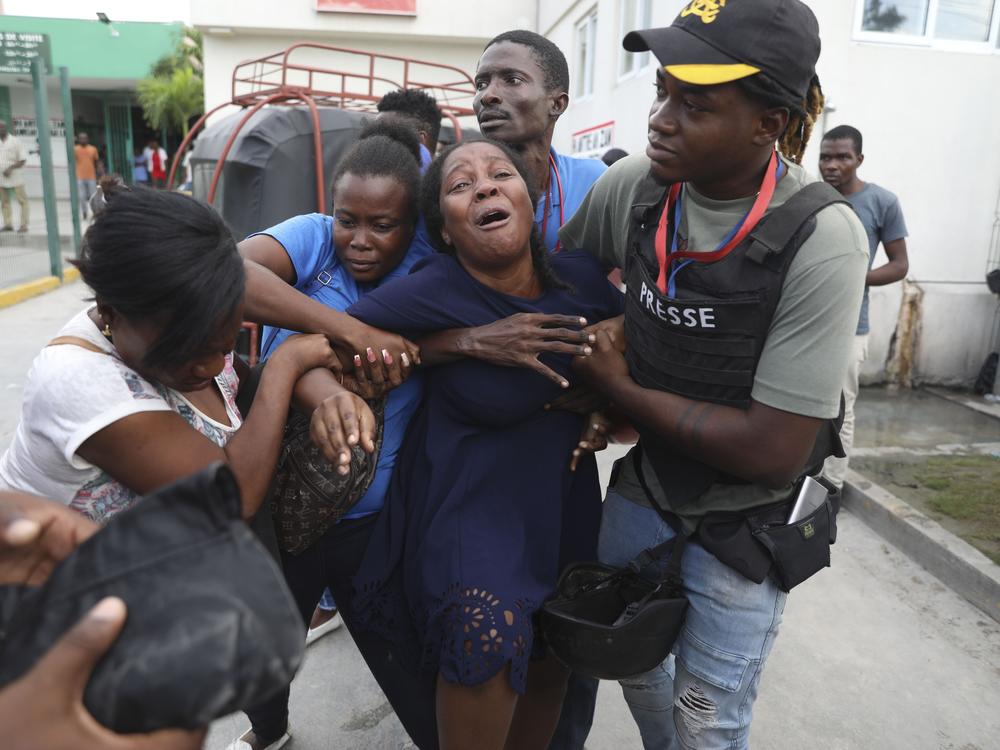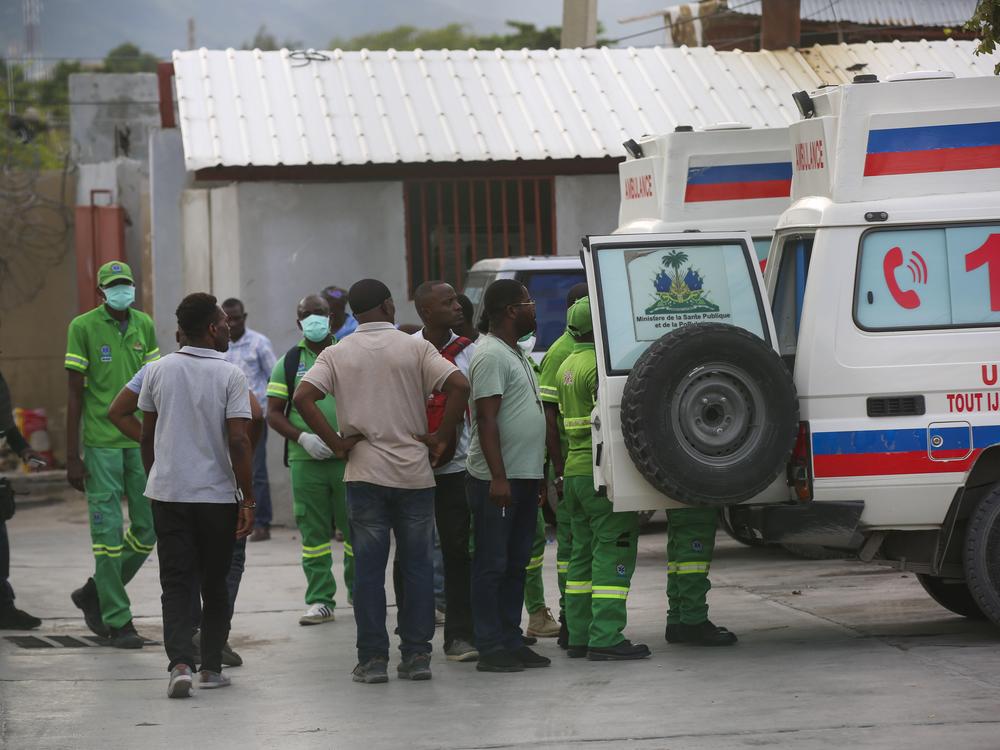Section Branding
Header Content
A gang attack on a Haitian hospital reopening kills 2 reporters and a police officer
Primary Content
Two reporters were killed and several were wounded Tuesday in a gang attack in Haiti on the reopening of Port-au-Prince's biggest public hospital, the country's online media association said. A police officer was also killed in the attack.
Street gangs forced the closure of the General Hospital early this year and authorities had pledged to reopen the facility in Haiti's capital on Christmas Eve. But as journalists gathered to cover the event, suspected gang members opened fire.
It was the latest violence in Haiti, crippled by an unprecedented crisis that has seen coordinated gang attacks on prisons, police stations and the main international airport.
Robest Dimanche, a spokesman for the Online Media Collective, identified the killed journalists as Markenzy Nathoux and Jimmy Jean. Dimanche said an unspecified number of reporters were also been in the attack, which he blamed on the Viv Ansanm coalition of gangs.
The Haitian Association of Journalists confirmed two reporters and a police officer were killed, and seven reporters were wounded in what it called "a macabre scene comparable to terrorism, pure and simple."
Haiti's interim president, Leslie Voltaire, said in an address to the nation that journalists and police were among the victims of the attack. He did not specify the casualty numbers or provide a breakdown.
"I send my sympathies to the people who were victims, the national police and the journalists," Voltaire said.
Later, the government put out a statement saying it is "responding firmly to the attack."
"This heinous act, which targets an institution dedicated to health and life, constitutes an unacceptable attack on the very foundations of our society," it said.
Earlier, a video posted online by the reporters trapped inside the hospital shows what appeared to be two lifeless bodies of men on stretchers, their clothes bloodied. One of the men had a lanyard with a press credential around his neck.
Radio Télé Métronome initially reported that seven journalists and two police officers were wounded. Police and officials did not immediately respond to calls for information on the attack.
Another video posted online, which also could not be immediately verified, showed reporters inside the building and at least three lying on the floor, apparently wounded.
Street gangs have taken over an estimated 85% of Port-au-Prince and have also targeted the main international airport and Haiti's two largest prisons.
Johnson "Izo" André, considered Haiti's most powerful gang leader and part of the Viv Ansanm group of gangs, which that has taken control of much of Port-au-Prince, posted a video on social media claiming responsibility for the attack.
The video said the gang coalition had not authorized the hospital's reopening.
Haiti has seen journalists targeted before. In 2023, two local journalists were killed in the space of a couple of weeks — radio reporter Dumesky Kersaint was fatally shot in mid-April that year, while journalist Ricot Jean was found dead later that month.
In July, former Prime Minister Garry Conille visited the Hospital of the State University of Haiti, more widely known as the General Hospital, after authorities regained control of it from gangs.
The hospital had been left ravaged and strewn with debris. Walls and nearby buildings were riddled with bullet holes, signaling fights between police and gangs. The hospital is across the street from the national palace, the scene of several battles in recent months.
Gang attacks have pushed Haiti's health system to the brink of collapse with looting, setting fires, and destroying medical institutions and pharmacies in the capital. The violence has created a surge in patients and a shortage of resources to treat them.
Haiti's health care system faces additional challenges during the rainy season, which is likely to increase the risk of water-borne diseases. Poor conditions in camps and makeshift settlements have heightened the risk of diseases like cholera, with over 84,000 suspected cases in the country, according to UNICEF.


